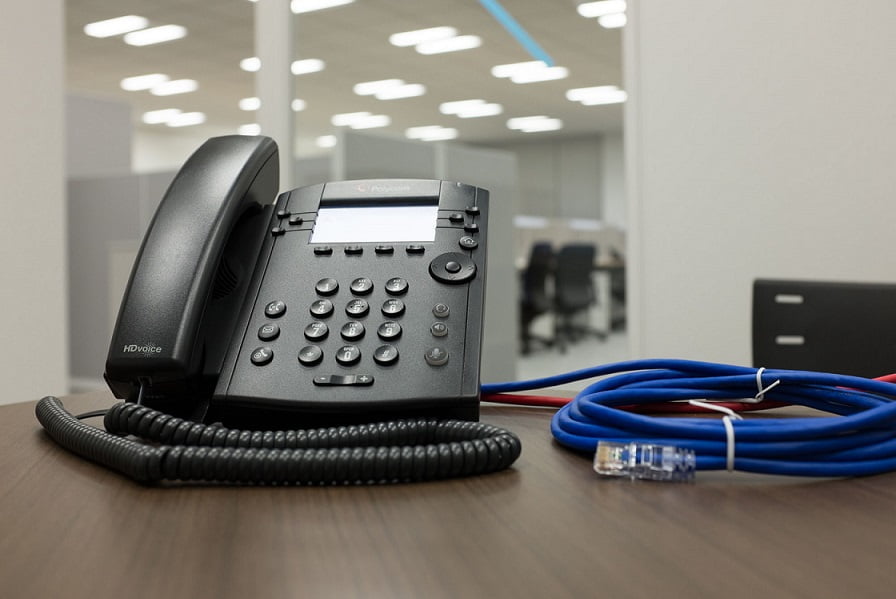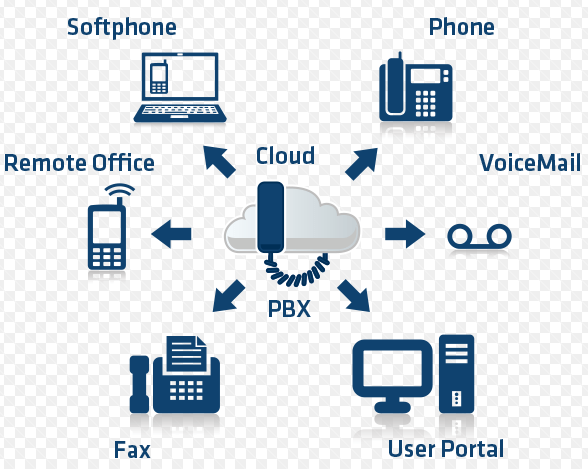A Buyer’s Guide: Choosing Best IP Telephony Solutions
A Buyer’s Guide: Choosing Best IP Telephony Solutions
Voice over IP (VoIP) technology is quickly becoming a popular mode of voice communication, but choosing the right VoIP vendor requires understanding how voice technology has evolved to address current business needs. Modern Internet Protocol (IP) standards support combining voice — traditionally delivered via time-division multiplexing (TDM) telephony — with Web-based data streams. VoIP technology can help boost productivity and provides a point of entry for businesses that want to upgrade their legacy telephony systems to more versatile IP communications services.
This guide will walk you through the process of buying VoIP, exploring how VoIP evolved for the enterprise and what benefits it can provide for your business. The guide also looks at which features to consider when choosing a VoIP vendor, and finally compares the top VoIP vendors in the market, accompanied by product overviews.

What to look for in a business phone system
When you’re thinking about investing in something as important as a business phone system, there are a handful of questions you absolutely must be prepared to ask. Here are a few categories of things to think about when looking for a business phone system:
Features
The first and most important aspect to consider is understanding which features are offered. Many hosted phone providers don’t offer the same features in their hosted product as they do for their premises-based solution.
If critical business phone system features like call queues, IVRs and conferencing are missing or cost extra, then the product may not be the right solution.
Ideally, a cloud phone system offering should come with all UC features included so you don’t have to worry about lack of features when choosing a cloud solution.

Initial Investment
Hosted VoIP solutions have a low upfront cost and are typically charged as a monthly fee per user. Using an on-site VoIP server has a higher cost upfront, but then no recurring monthly fee. Above a certain threshold, it becomes more cost effective to purchase your own equipment than to pay a monthly fee.
Hosted VoIP tends to be the most attractive for businesses with 5 to 15 employees. However, many large businesses with 100 or more users often choose a cloud phone system due to other advantages. It is always best to speak with a knowledgeable VoIP specialist who can help you weigh the unique aspects of your business to help you decide.
Total Cost of Ownership
A cloud phone system can often have a very low total cost of ownership due to the savings in IT personnel and because your hosted provider takes care of server configuration and maintenance. Depending on the size and structure of your business, this can be an advantage of hosted VoIP over premises-based VoIP.
Existing Infrastructure
Consider your current technology infrastructure. Are you using an aged system to connect your phones to the Public Switched Telephone Network (PSTN)? Legacy connections like Time Division Multiplexing (TDM) can be expensive. You could see significant cost savings by switching to a VoIP trunk or by using a hosted PBX. To help you determine what these savings might look like and if it’s worth the switch, use this online VoIP cost calculator to learn what your Return On Investment (ROI) savings will be. On the other hand, if you like to keep your existing TDM or POTS lines, then a premises-based solution with telephony interface cards will be the best way to go.

Flexibility
Consider how your business may grow in the coming year. If there is potential for rapid growth you will need to consider how this will impact your purchase. If going with a premises-based solution, you will likely want to purchase a larger appliance than is initially needed to accommodate growth. With hosted VoIP, new users can be added to the cloud phone system as needed.
Regardless of whether your existing phone system is a premises-based or cloud solution, when considering a move to a new business phone system it’s smart to ask if the transition is reversible. For example, if you were to change from an on-premise solution to a cloud-based solution, you might think the lack of control over your company’s IT infrastructure is a hindrance. Every business is different, so what may be a great benefit for one business could become a detriment for another.
Sadly, most hosted providers do not offer a migration path back to an on-premises solution once the transition is complete. A truly flexible solution allows you to move between on-premises, to hosted, to on-premises, and back again, seamlessly and with minimal friction.
Redundancy
Natural disasters and other unforeseen events can wreak havoc on any business, anytime. In today’s business environment, it’s a necessity to have a thorough disaster recovery and contingency plan. When your business communications go down, the cost is high, not only in terms of lost productivity, but also in lost reputation and sales when your customers can’t get in touch with you. Even for a small business, building redundancy into your IT infrastructure is critical. For on-site solutions this typically entails purchasing extra failover hardware (or backup equipment) in anticipation of an emergency. Hosted solutions could provide the answer because when your phone system is in the cloud it can keep your communications up and going even when your main facility is inoperable. A reputable hosted provider should at a minimum provide power, network infrastructure and carrier connectivity redundancy.
Security
Outsourcing your IT to the wrong partner can bring with it serious security implications. However, if you choose a reputable hosted provider they will have the resources to keep your data secure. Smaller businesses may find that a hosted provider does a better job of keeping data secure primarily because of the dedicated pool of resources the provider invests in keeping all of their clients’ data safe. However if your business must comply with security regulations that require data to be stored on-site, then a hosted solution is probably not the best solution.

Mobility
One survey found that 43% of employed Americans spend at least some time working remotely and 31% reported working remotely four to five days a week. In other words, more and more people are working away from the physical office, so possesing a business phone system that caters to the increasingly-remote mentality could help your business a lot. VoIP phone systems have a bit of an edge when it comes to mobility. After all, they use the Internet to make a receive calls, which means they’re inherently more mobile-friendly. They’ll also often come with softphone apps that make it easy to connect directly from a personal mobile device while outside of the office. Softphone apps make it look on the caller ID like you’re in the office regardless of where you really are. This ensures that you’re maintaining a professional appearance and feel while also protecting the brand of your company.
Reporting
Having insights and data behind who your callers are and the actions they take is an essential part to learning and growing as a company, and a quality phone system should give you the ability to see reports that give you that information.
Unlimited connectivity
IP solutions provide a wide range of communications offerings from powerful IP-PBX, IP phones to enterprise-class applications to help your business enhance efficiency and productivity. Ideally suited for midsize enterprises looking to enhance operational processes through collaboration solutions empower your employees to be more productive and efficient.

Sophisticated contact center
IP phone systems can provide a powerful foundation to creating a streamlined contact center. Samsung Contact Center Pro (SCC Pro) provides sophisticated call routing, recording, IVR and reporting abilities that deliver a professional and exceptional customer care experience.

SIP Trunks
Session Initiation Protocol (SIP) trunking is a service offered by a communications service provider that uses the protocol to provision voice over IP (VoIP) connectivity between an on-premises phone system and the public switched telephone network (PSTN). SIP is used for call establishment, management and teardown. SIP trunking is typically sold as a replacement for digital Primary Rate Interfaces (PRIs), which are based on time-division multiplexing (TDM).

